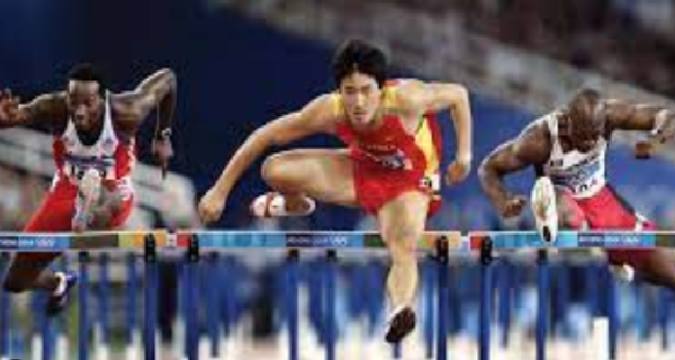
Preparation for a tournament involves more than just showing up and playing. To excel, athletes need a holistic approach that addresses physical fitness, skill mastery, mental resilience, and strategic planning. Whether you’re a rookie athlete or a seasoned player gearing up for your next big competition, preparing thoughtfully and consistently will set you up for success. Here’s a comprehensive guide to help you become tournament-ready and perform at your best.
1. Define Your Goals and Build a Focused Plan
The first step to tournament preparation is to set clear, achievable goals. Start by identifying both short-term and long-term objectives. Perhaps you want to improve specific skills, enhance your stamina, or increase your speed. Setting clear goals gives you direction and allows you to track your progress as you prepare.
With goals in mind, create a structured training plan that progressively builds your skills and fitness. Organize your schedule into training phases, such as endurance, skill-specific drills, and mental conditioning. In the initial phase, focus on general fitness and basic skills. As the tournament approaches, intensify your sport-specific training, simulating the types of movements, speed, and agility you’ll need on game day. A well-organized plan will prevent burnout, build your confidence, and ensure that you’re in peak condition by the time you reach the tournament.
2. Focus on Physical Conditioning for Stamina and Power
A strong body is essential for peak athletic performance. Start by building a foundation of strength and cardiovascular fitness through full-body workouts and cardio sessions. Compound exercises like squats, lunges, and push-ups build muscle groups, improving overall power, stability, and endurance. Cardio, such as running, cycling, or swimming, boosts stamina and prepares your body to maintain high energy levels throughout the game.
Consider incorporating high-intensity interval training (HIIT) and plyometrics (such as box jumps and sprinting drills) into your workouts to build explosive power and agility. These exercises improve your quickness, allowing you to react faster on the field or court. As the tournament approaches, simulate game-like scenarios in your training to help your body adapt to the demands of actual competition. Practicing these high-energy drills regularly will make a noticeable difference in your stamina, helping you to perform strongly until the final whistle.
3. Master Key Skills with Targeted Practice
Athletic success in tournaments is often determined by technical skill. To make sure you’re at your best, focus on drilling key techniques specific to your sport. If you play basketball, practice shooting accuracy and defensive footwork; if you’re a tennis player, work on your serve, forehand, and backhand precision. Targeted practice builds muscle memory, making essential skills feel second nature, even under pressure.
Integrate game-simulation drills into your practice sessions to build speed and accuracy. For instance, in soccer, practice taking quick, accurate shots on goal, or in volleyball, work on quick reflexes with setting and spiking drills. You can also incorporate team scrimmages or competitive drills with peers to mimic real-game intensity. Practicing with game-like intensity helps bridge the gap between training and competition, increasing your confidence and readiness.
4. Mental Conditioning: Strengthening Focus and Resilience
Mental readiness is a crucial component of tournament success. Practicing mental toughness helps you stay calm, focused, and resilient when facing challenging moments. Visualization is a powerful tool many athletes use to imagine their ideal performance. Spend time each day visualizing your skills, goals, and responses to potential setbacks. This mental exercise can enhance your confidence and help reduce performance anxiety.
Breathing exercises and mindfulness techniques can also help regulate your nerves. Deep breathing keeps you calm under pressure, while mindfulness trains you to stay present and focused. Mental exercises like these build resilience, helping you recover quickly from mistakes and maintain a steady mindset, especially in high-stakes moments.
5. Prioritize Nutrition and Hydration for Optimal Performance
Fueling your body well is essential for sustaining energy levels and aiding recovery. Prioritize a balanced diet that includes lean proteins, complex carbohydrates, healthy fats, and plenty of fruits and vegetables. Carbohydrates provide the energy needed for high-intensity play, while proteins support muscle repair and growth.
Equally important is hydration. Drinking water throughout the day helps maintain focus and prevents fatigue, while electrolyte-rich drinks can support hydration during long practices or games. Avoid sugary or heavily processed foods, which can lead to energy crashes. On game day, consume a light, energy-boosting meal a few hours before your event, such as whole-grain toast with peanut butter and banana, to avoid sluggishness and stay sharp.
6. Emphasize Rest and Recovery for Peak Readiness
Your body needs time to recover from intense training. Allowing yourself sufficient rest enhances muscle repair, mental clarity, and overall performance. Aim for 7-9 hours of quality sleep each night, as sleep is critical for physical and cognitive recovery.
In addition to sleep, incorporate active recovery techniques such as stretching, foam rolling, and light mobility exercises. Active recovery keeps your muscles loose, improves flexibility, and prevents stiffness. Scheduling rest days or light activity days is essential to prevent overtraining, which can lead to injury or burnout.
7. Adopt a Positive, Growth-Oriented Mindset
Finally, approach your tournament with a positive, growth-focused attitude. Remind yourself of the hard work and dedication you’ve invested in preparation. Embrace challenges as opportunities to grow, and understand that setbacks are part of the journey. By focusing on progress, rather than perfection, you’ll be better equipped to handle tournament pressure and enjoy the competition.
Preparing for a tournament requires commitment, focus, and dedication to a balanced approach. By following these strategies—goal setting, structured training, skill mastery, mental toughness, balanced nutrition, sufficient rest, and a positive mindset—you’ll be able to compete confidently and perform your best. Being tournament-ready means not only achieving peak physical condition but also building the resilience, confidence, and skills needed to thrive in the face of competition.